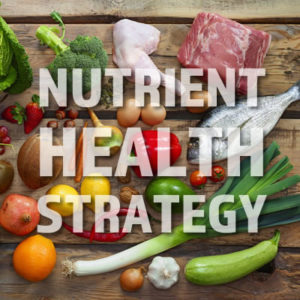Vitamin B6
Vitamin B6 is a water-soluble vitamin that is naturally present in many foods, added to others, and available as a dietary supplement. It is the generic name for six compounds. There are 2 activated forms called PLP (sometimes called P5P) and PMP, plus one other form is called pyridoxine which has reduced bioavailability (found in fruits, vegetables and grains). People found to be suffering from chronic fatigue often have a deficiency of vitamin B6.
Vitamin B6 is important for brain development and for keeping the nervous system and immune system healthy and to make hemoglobin that carries oxygen in red blood cells throughout the body. Food sources of vitamin B6 include poultry, fish, potatoes, chickpeas and bananas. Vitamin B6 can also be taken as a supplement and is found in B complex supplements and multivitamins. People who have issues absorbing nutrients from foods are more likely to be vitamin B6 deficient.
Vitamin B6 is critical in the production of cysteine and glutathione.

Vitamin B6 supplementation
Supplementation is very safe, even at high doses. This may compensate for poor absorption or a high rate of excretion. Vitamin B6 can be found in three different forms. In order to get nutritional value out of these forms, they must first be converted into P5P in the liver.
- B6 supplements are typically in large dose quantities. Pyridoxal phosphate (P5P), the active form of vitamin B6 and this is the best.
- B complex supplements contain all the B vitamins. Typically in large dose quantities.
- Multi-vitamins: Centrum for men contains 5.5mg.
Vitamin B6 + Zinc + magnesium combo
Taking these 3 micro-nutrients has been proven to increase testosterone levels. These are often sold as a supplement called ZMA which is popular with body builder and athletes. A typical ZMA supplement contains 10mg of B6, 30mg zinc and 400-500mg of magnesium. But taking ZMA is a waste of time if you compare it to a good multi-vitamin and eating some B6 and zinc rich foods.
How much vitamin B6 do I need?
A daily dose of 1.3mg of vitamin B6 for an average adult under 50. However, people who are above the age of 50 should consume 1.7mg every day.
Vitamin B6 Foods
Nutritional yeast (1tsp): 4.6mg
Chickpeas (1 cup): 1.1mg
Beef liver (100g): 1.1mg
Tuna, yellowfin: (100g): 1.1mg
Salmon: 0.6mg
Chicken breast (100g): 0.6mg
Fortified breakfast cereals: 0.5mg
Potato: 0.4mg
Turkey (100g): 0.5mg
Banana (medium): 0.4mg
Beef (100g): 0.3mg
Vitamin B6 intake strategy
Our advice is to take a vitamin B complex supplement or a multi-vitamin that contains B6. A specific P5P supplement might also be useful to try and get the testosterone boosting effects of B6 + Magnesium + zinc. It's advisable to get a whole-food intake as well. Chickpeas, tuna, salmon, chicken, beef and bananas all contain lots of B6 and these are all nutrient dense foods that will transform your health. 1 teaspoon of nutritional yeast is also anther way of getting stacks of B6 (it can be added to pasta, smoothies and soups, but be careful if you have gout).
Adequate intake: 1.3mg per day, 1.7mg for over 50 year olds.
Theraputic dose: 15mg
Upper tolerable limit: 100mg.
Notes: RDA can be achieved via food, but B supplements are cheap and effective.
Vitamin B6 and Glutamate
Glutamate is one of your primary excitatory neurotransmitters. It has many important roles like stimulating your brain cells so you do things such as talking, thinking, processing information, learning, paying attention and memory. High levels of glutamate correlate with an increased risk of stroke and seizures.
Glutamate exists in very small concentrations. If levels rise, the neurons become too excited and don’t fire in a normal manner. Glutamate becomes toxic when in excess. The inhibitory neurotransmitter GABA is made from glutamate using an enzyme called GAD and vitamin B6 in a process called the GABA shunt pathway. Vitamin B6 is the vitamin that is essential to turn glutamate into GABA.

